Stop us if you’ve heard this one before:
It costs five times as much to acquire a new customer than it does to retain the ones that you already have.
While businesses should constantly be pursuing new prospects, they also shouldn’t neglect their goldmine of current customers. And more likely than not, your business has customer retention strategies in place. But are you valuing this base who is already willing to buy as much as you should?
Think about it. They know you. They trust you.You’ve already done the “hard part” of scoring that initial sale, right?
So with the right customer retention strategies in place, you turn those one-off buyers into loyal, long-term advocates.
The good news? Companies today are spoiled for choice when it comes to avenues to engage and reactive their customer lists. To squeeze more out of your existing buyers, we’ve broken down a list of 12 actionable customer retention strategies to ensure you’re getting the most out of your current shoppers:
1. Put Your Customer Follow-Ups on Autopilot
Sometimes if you want something, all you need to do is, well, ask.
Perhaps the best place to encourage repeat purchases is your customers’ inboxes. This is especially true given that some people are checking their emails more than 15 times per day. Additionally, email reach isn’t restricted by any fickle algorithms unlike social media.
How often you should hit your list with offers, deals and updates is hotly debated. According to industry search by CoSchedule, between two and four times per month seems to be the “sweet spot” for most industries.
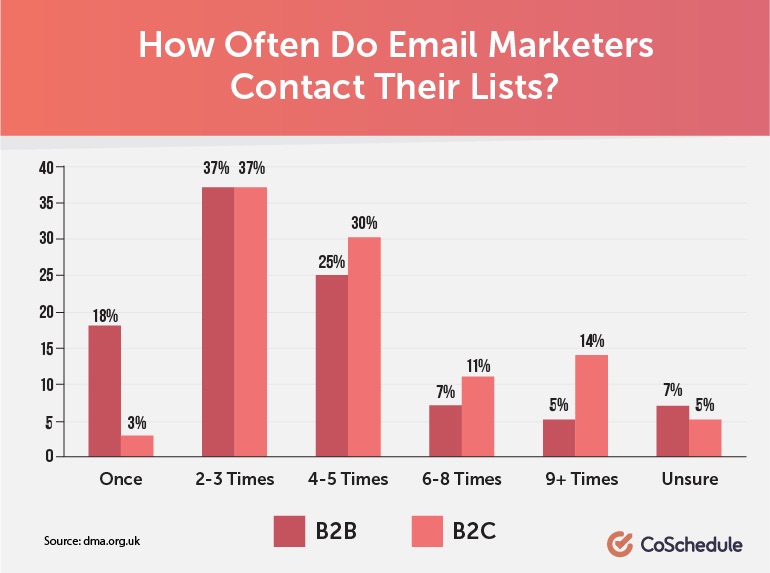
Although you don’t want to go overboard with offers and deals, don’t be shy about following up with your satisfied customers. Whether it’s a discount, new product launch announcement or your latest promotion, an offer is a great excuse to hit up your list.
Here’s an example of customer retention via email from Moo:
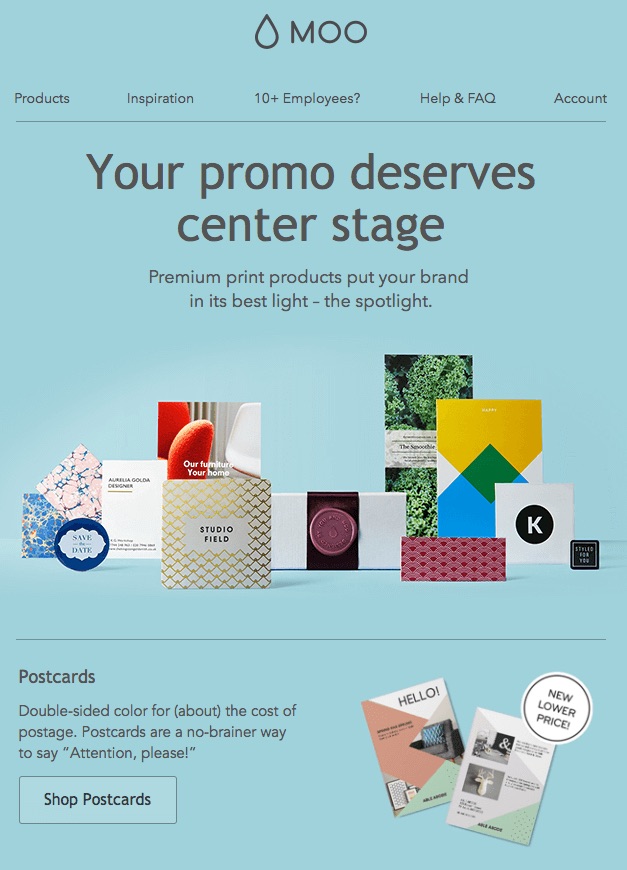
Nothing spammy about that, right?
The beauty of email follow-ups is that you can put them on autopilot. In particular, post-purchase emails and autoresponders are an awesome way to bring your previous customers back into the fold.
For example, you can wait a week or so after an initial purchase before following up with an incentive for your customers to leave feedback on-site. Wolverine commonly offers discount incentives for leaving helpful review content.
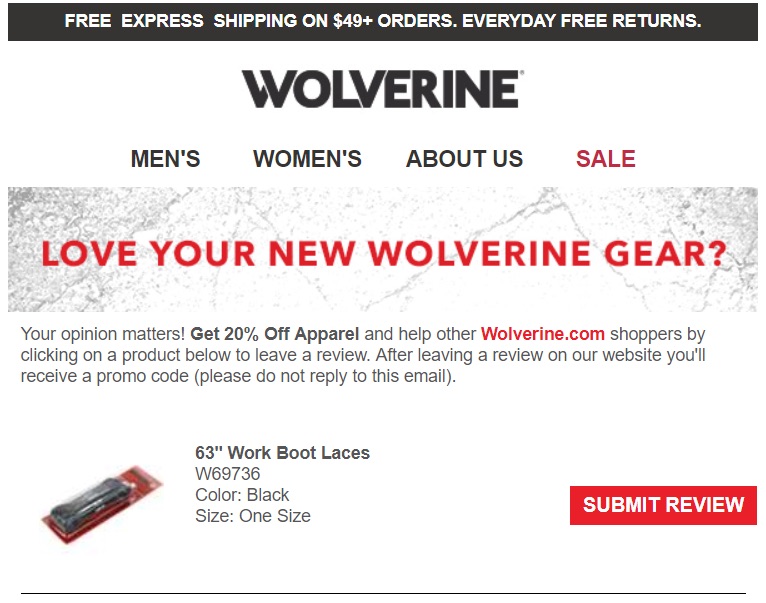
In terms of customer retention strategies that directly impact your bottom line, cart abandonment emails are a must. In a day and age where three-fourths of all shoppers abandon their carts without making a purchase, a quick email reminder can provide a much-needed push.
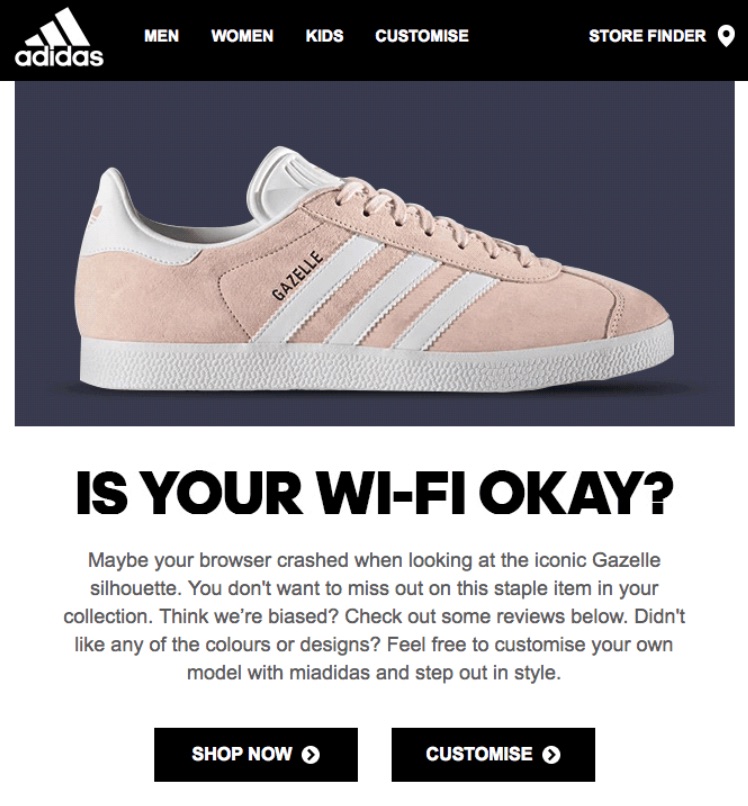
No matter how you re-engage, make sure you’re keeping your brand top of mind for your customer list. The best part is many brands do this automatically.
2. Look for Clues in Your Customer Reviews
Scoring repeat purchases means consistently coming up with products that your customers actually want.
No-brainer, right?
To figure out how to grab the attention of customers in the future, look no further than your existing customer feedback. More likely than not, your customers are giving you the biggest clues about what’s great about your product and what most shoppers commonly dislike.
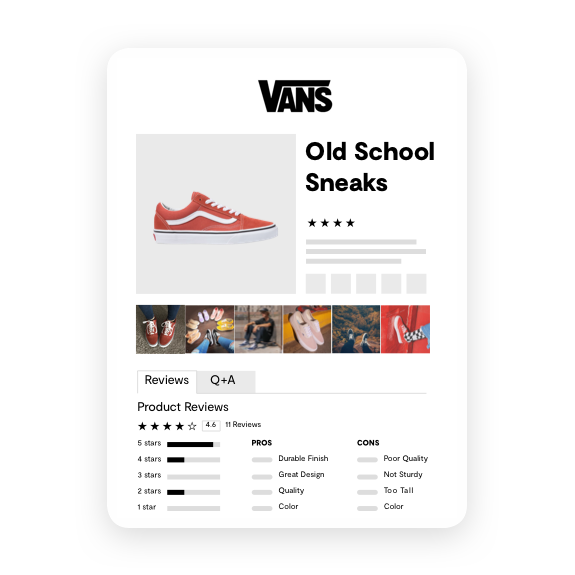
That’s why so many companies use ratings and reviews software. Review content gives you insights into the popular products with actual buyers. In other words, you don’t have to second-guess what people want.
PowerReviews takes it a step further to provide brands and retailers with detailed information through review content analysis. With Product Pulse, companies zero in on top-performing products, but also find the terms and commonly-used adjectives in your reviews to uncover what’s actually working or causing a ton of product returns.
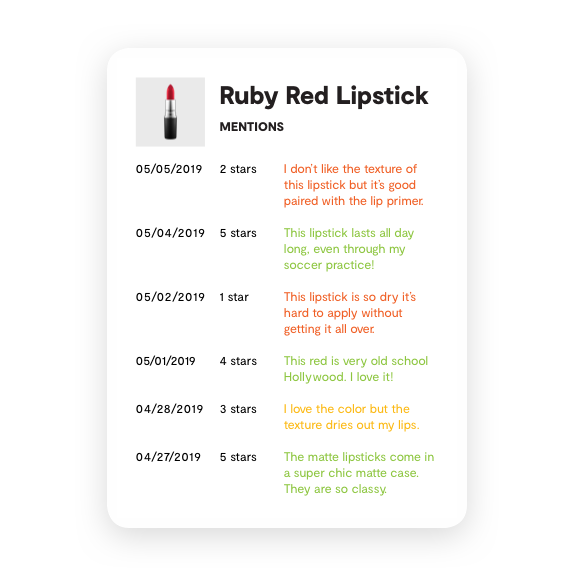
Try to sprinkle these terms throughout your marketing messages as well (think: email and social media). And during your follow ups, you can better address the issues they’ve commented on before.
3. Ramp Up Your Content Promotion
The number of marketing messages your customers see on a daily basis is staggering.
Cutting through the noise means ramping up your content production and posting more often on social media. Popping up in your customers’ social feeds could be the “Oh, yeah!” moment that encourages them to make their next purchase.
And again, research shows that there’s no need to be shy about content promotion. According to Sprout Social data on the best times to post on social media, many businesses engage with customers throughout the day and week on platforms such as Instagram.
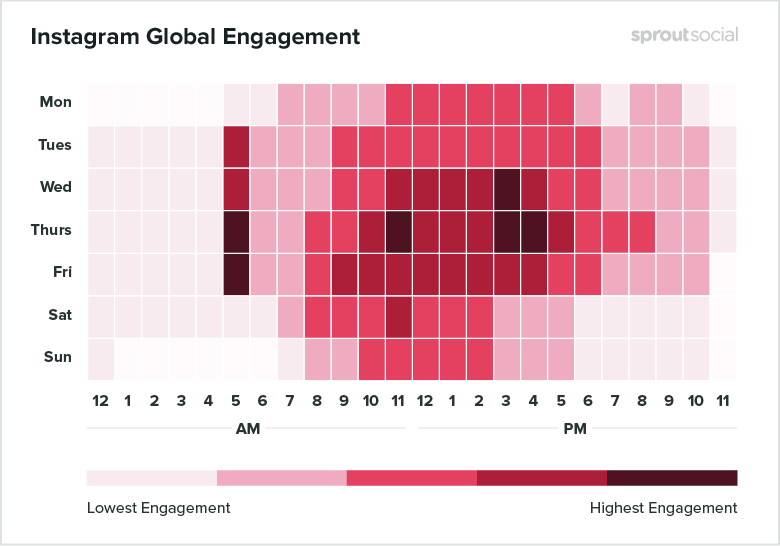
This is just another benefit of Instagram because brands have a much easier time interacting with customers in various times of the day. HelloFresh is a shining example of a brand that goes hard when it comes to content promotion.

For starters, they publish multiple eye-popping photos of their dishes daily on Instagram. The visuals beg for engagement from customers. Whether it’s a “yum” or “I gotta try this,” HelloFresh does a wonderful job at keeping customers engaged on Instagram.
The brand also uses the same photos along with positive comments from their customers to create content for their weekly newsletter. This allows them to double-dip their social content to send more emails, making yet another valuable touchpoint with their customers in the process.
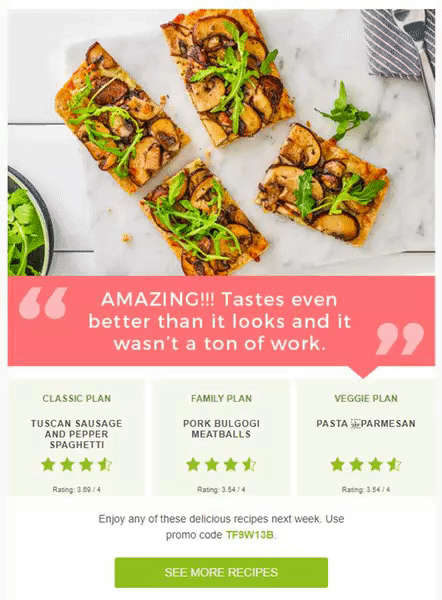
4. Encourage Your Customers to Promote Their Purchases
Some of the most effective customer retention strategies can actually be carried out by none other than your customers themselves.
Encouraging your customers to share their photos and experiences helps you fill up your own content calendar and serve as social proof for new buyers.
For example, promoting a branded hashtag (#WhatMakesMeSmile) empowers your satisfied customers to show off on your behalf.

In return, you can regularly publish user-generated content that shows off your brand advocates. By doing this, you not only get your brand in front of more eyes, but you also engage with your loyal customers.
This will help you create a community of advocates who want to share their experiences with your brand. What’s better than eager customers wanting to help you advertise to their own communities?
https://www.instagram.com/p/BvE3F7NjsVa/
If you need any help with the organization of your user-generated content, it’s a cinch with the help of the PowerReviews Visual and Social Suite. Our tools do the legwork of content collection, authorization and even displaying user-generated visuals across your product pages.
Doing this in one fell swoop helps brands save time on searching endlessly through social channels to find the best content from their customers.
5. Regularly Recommend New Products
Here’s some food for thought: product recommendations account for 31% of ecommerce sales.
The takeaway here?
If you want your customers to buy again, offer a suggestion to make it happen. Amazon’s recommendation engine is a shining example of how you can drive repeat purchases based on previous buying behavior.
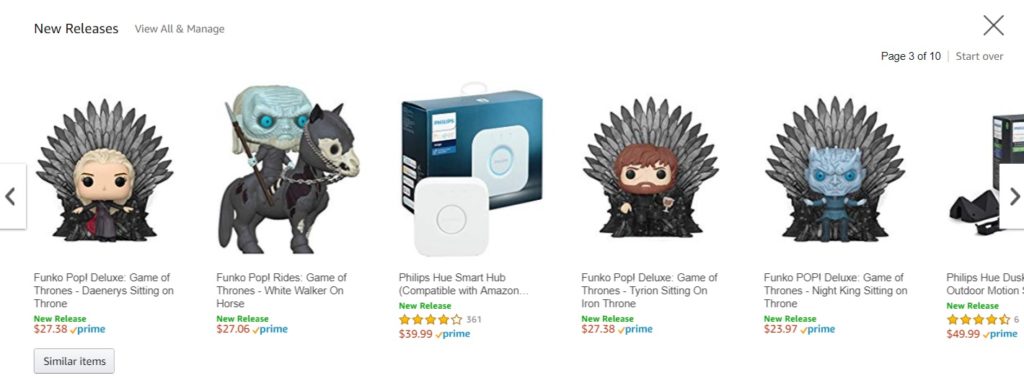
You can likewise implement recommendations as part of your follow-up email campaigns, much like Crate & Barrel does here.
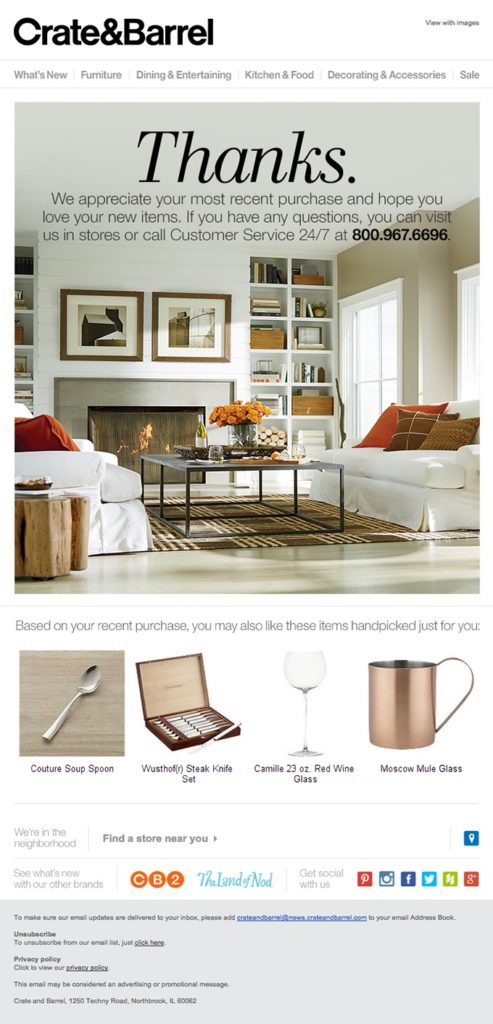
Note that you don’t necessarily need a full-blown recommendation engine to suggest products. For example, you can simply suggest that customers check out your latest offers and frame them as recommendations.
6. Treat Your Customers as a Community
Consumers today support brands as part of their own identity.
Framing your business as representing a sort of community is a smart move for establishing a stronger sense of brand loyalty.
For example, behind Beardbrand’s line of male grooming products is a message of empowerment and self-improvement for their audience of “urban beardsmen.”
https://www.instagram.com/p/BvKLUlNHtc6/
Meanwhile, ThinkGeek’s shamelessly nerdy messaging goes hand-in-hand with their target audience obsessed with fandoms. It’s all about understanding your customers needs and putting yourself in their shoes.
https://www.instagram.com/p/BvUoIcxAd_j/
See how that works?
Community is all about feedback, which is why it’s so important for brands and retailers to understand what shoppers actually experience in store on online. And what better way to get that feedback than to rely on a community of shoppers who trust and want to help you improve?
Meet Journey IQ, PowerReviews’ latest feature to help companies scale customer experiences, get 360 insights and improve sales, all by improving their journey. Send your shoppers on missions with SMS text messages to get them to provide feedback about their shopping experience.
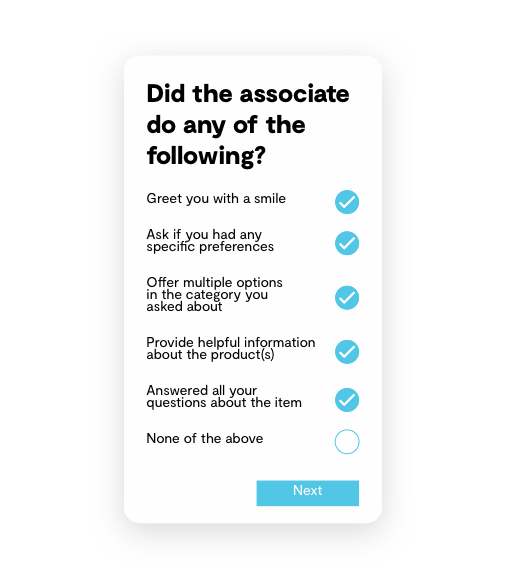
Instead of traditional mystery shoppers, think of this as a way to incentivize a community that already loves you.
7. Rethink How You Respond to Feedback
Customers have crazy high expectations when it comes to customer service.
This means not only responding to all of your customers’ concerns and questions, but also doing so in a timely manner (like, within 24 hours at the latest).
And those speedy, thoughtful responses are totally worth it as responding to a customer increases the potential for advocacy by as much as 25%. Stepping up your customer service is an example of customer retention that goes beyond your marketing team.
we totally hear you. our engineers are constantly working to improve the Glow app’s functionality. we’ll be sure to update all Glow users when new features are added.
— Casper (@Casper) March 26, 2019
Monitoring your mentions more closely helps you better serve your customers while also coming up with ideas for new products. Ultimately, this keeps folks in your funnel and keeps them from potentially bouncing to a competitor.
8. Get Real With Your Customers
Piggybacking on No. 6, people crave a personal connections with brands that they buy from.
There is no “right” way to create that connection, but one way is through supporting a cause. Your customer retention strategies need to focus on the wants your shoppers have and should please them with campaigns you know they’ll love.
For example, Pura Vida highlights how their products support independent artisans and show off their philanthropy via their Instagram Stories.
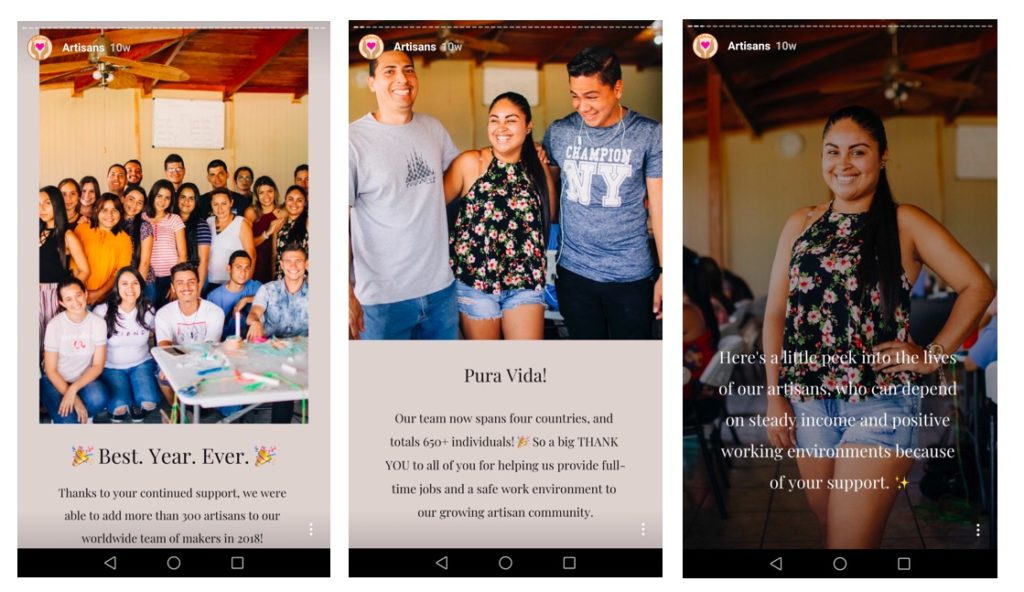
Another unconventional way to show off the human side and “get real” with your customers is by owning up to your mistakes. In the case that someone might actually fall out of your funnel, a sense of authenticity can actually turn the situation around.
This apology email from Chewy is a prime example of showing sincere concern from your customers. In Chewy’s case, their authenticity turned a potential negative into a brilliant example of customer retention.
This is why I love @Chewy. I didn't email them, I just wrote a review on the food to let other lab owners know that the food didn't agree with my dog pic.twitter.com/tmzJZlaGXu
— Samantha Amado (@SamanthaAmado) March 19, 2019
9. Offer Incentives for Shares and Shout Outs
If you want more organic mentions from your customers, sometimes it helps to sweeten the deal.
Many businesses publish “tag-a-friend” posts and contests, both of which drive engagement while also encouraging new business. Milk Makeup does this with a simple post on Instagram asking their fans to promote. In turn, the brand advocates will receive some samples. It’s nothing crazy, but it’s certainly effective.
https://www.instagram.com/p/BvCICVDnbiu/
And of course, referral programs are a classic way to translate customer loyalty into new business. Anyone who’s willing to refer your products to someone else obviously trusts you and signals themselves as a VIP in your book.
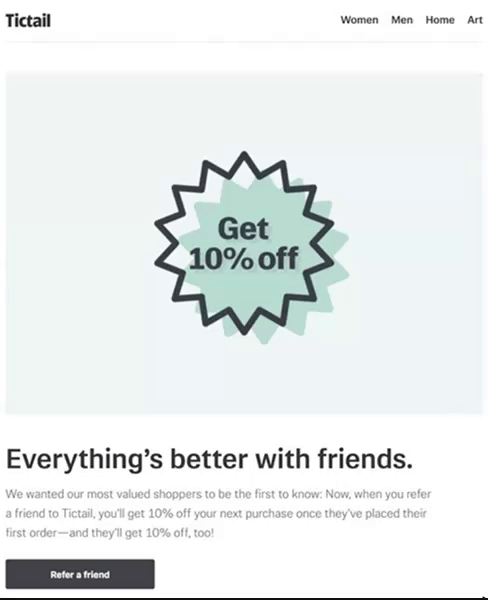
10. Pick Your Customers’ Brains
Remember what we said earlier about the power of asking?
Arguably one of the lowest-hanging customer retention strategies out there is simply asking your customers questions via email or social. This serves as a meaningful way to get conversations going and to create a good back-and-forth with your shoppers.
For example, you can ask about specific products and gather feedback to inform your marketing decisions. Birchbox does this regularly by just asking a question on Instagram to get engagement and see what their customers think.
https://www.instagram.com/p/Bu3pInLjfss/
There are other ways to ask questions on social as well. Again, Birchbox does a great job at engaging their customers.
Here you can see the company is reposting great content from their customers for the sake of encouraging engagement. It’s nothing too ground breaking, but for successful customer engagement strategies, this kind of interaction with your customers pushes them closer toward brand advocacy.
https://www.instagram.com/p/BvSi-orDccF/
11. Compliment Your Customers & Interact ‘Just Because’
As we’ve said many times now, not all customer retention strategies need to be complicated or represent full-blown campaigns. Simple interactions do a lot more good than you likely think.
Take for instance how many businesses shout-out their customers, which for most, might seem completely random or even without a direct mention to a brand. ModCloth goes out of their way to personally compliment customers as part of their routine customer satisfaction and care initiatives.
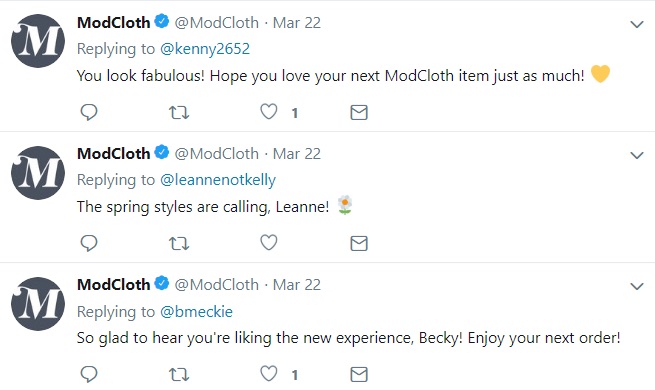
Additionally, ModCloth also shows customers love with surprises and gifts. This in turn, results in positive mentions and user-generated content. Come on! Who doesn’t like a surprise gift from one of your favorite brands?
We are so glad you got your surprise, Simona! Enjoy all of those magical gifts! ⚡
— ModCloth (@ModCloth) March 25, 2019
12. Run Campaigns Specifically Targeting Current Customers
Finally, you can score points with your current customers by running promotions that are exclusive to past buyers.
In other words, you can give your former buyers the VIP treatment.
For example, “for your eyes only” email deals make being part of your list even more valuable while also encouraging another purchase.
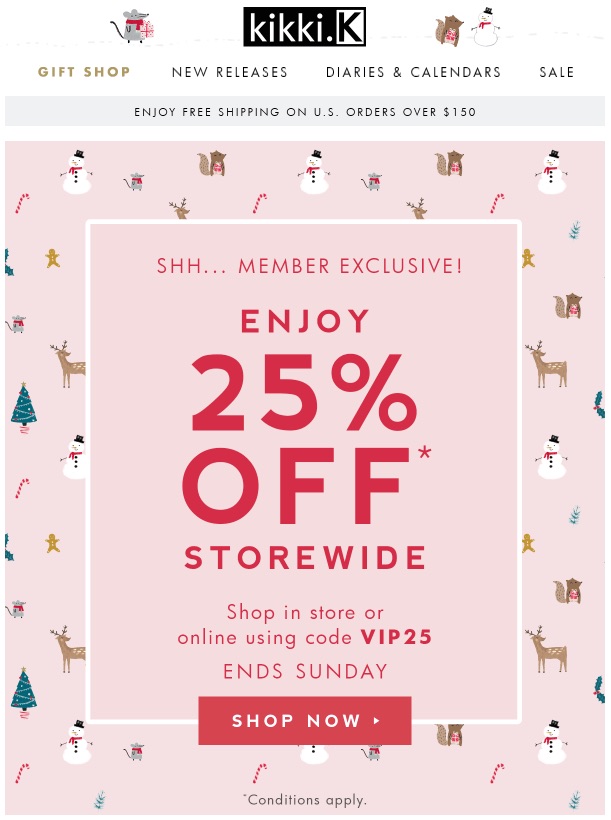
You can also run ad campaigns that target former customers directly. Facebook remarketing ads are a great avenue for such campaigns, rewarding buyers for their past patronage.
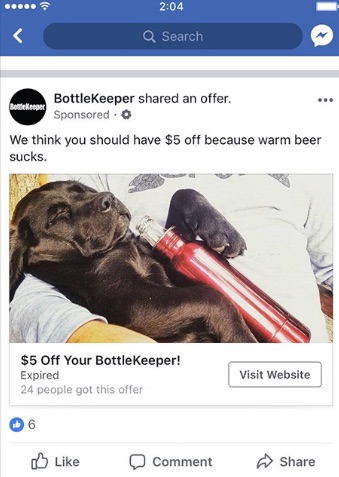
Anything you can do to make your current customers feel as special should be highly considered. These are the folks already buying from you, so do your best to make them feel wanted and appreciated. You’ll be surprised how far a little favoritism will take you in the eyes of your customers.
And with that, we wrap up our list.
What Customer Retention Strategies Are You Rolling Out?
Rather than constantly chase new customers, consider the value of the people already on your list.
So much of a good customer retention strategy boils down to consistent engagement. Whether through email or social media, one little “push” could be all they need to make that ever-so-important follow-up purchase.
And so the more customer retention strategies you adopt, the more touch points you make to encourage those repeat buys.
With the help of these tactics and tools such as PowerReviews, you can give your customers exactly what they want time and time again.






